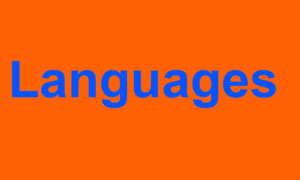On the 4th of February 2024 the social media giant Facebook celebrated its 20th anniversary. Facebook has spread across the world, becoming not only an incredibly valuable company but also one of the most important institutions of the early 21st century. How is any of this possible? Thirty years ago none of this would have been possible but with the advancement of modern technology, companies like Facebook and its competitors Reddit, Instagram, snapchat, and twitter now called X etc have flourished in our modern society. The story of Facebook goes back to 2004 when it was founded by Mark Zuckerberg, Eduardo Saverin, Dustin Moskovitz, and Chris Hughes, all of whom were students at Harvard University. Harvard students who signed up for the service could post photographs of themselves and personal information about their lives, such as their class schedules and clubs they belonged to. Its popularity increased, and soon students from other prestigious schools were allowed to join, by June 2004 more than 250,000 students had signed up. The attractiveness of Facebook stems in part from cofounder Zuckerberg’s insistence from the very beginning that members be transparent about who they are; users are forbidden from adopting false identities. By the end of 2004, The Facebook had reached one million active users.
However this is only part of its success, its greatest asset is that although access to Facebook is free of charge advertisements are allowed which earns the company most of its revenue. Thus, the connectivity among Facebook users makes it easier for businesses to connect their products with consumers. For example, the household product manufacturer Procter & Gamble attracted 14,000 people to a promotional effort by “expressing affinity” with a teeth-whitening product. This kind of direct consumer engagement on such a large scale had not been possible before Facebook, and more companies began using the social network for marketing and advertising. Today its value is around $900 billion.
However, it isn’t all good news, Facebook has ongoing problems with privacy. It first became a serious issue for the company in 2006, when it introduced News Feed, which consisted of every change that a user’s friends had made to their pages. After an outcry from users, Facebook swiftly implemented privacy controls in which users could control what content appeared in News Feed. Even in the last week of January 2024 the CEO appeared before the U.S. Senate Judiciary Committee, where he was told by Senator Lindsey Graham that ‘he had blood on his hands’ for not protecting the youngest and most vulnerable users of Facebook.
Facebook thrives as people can very simply say what they like good or bad, post whatever picture they like positive or negative and tag people in multiple pictures with or without permission. However, there is a snag, that is that whatever is posted is there to stay for all the world to see. It is very difficult to remove a post or picture that has been uploaded. Solomon the wisest man to have ever lived wrote ‘Death and life are in the power of the tongue,….’, in the book of Proverbs chapter 18 verse 21. What we say or write can have an influence for good or for evil. Therefore, we need to be very careful and think before we speak or write. People can say or write very hurtful things about others in the heat of an argument, only to regret it the next day, but by then it is too late. The damage is done, someone’s reputation could be ruined and someone seriously hurt by the words. It is believed that this type of cyber bullying has caused suicide rates to increase across the world. In 2023 statistics showed that 15% of teens said they were the target of online cruelty, while 41% of teens had a negative experience as a result of using a social networking site and 22% of teenagers had lost their friendship with someone due to actions on social media sites. The power of the tongue has not changed and so we need to be extra vigilant and slow to write or say anything we may later regret. (P. Pilgrim pilgrimway101@yahoo.com)



